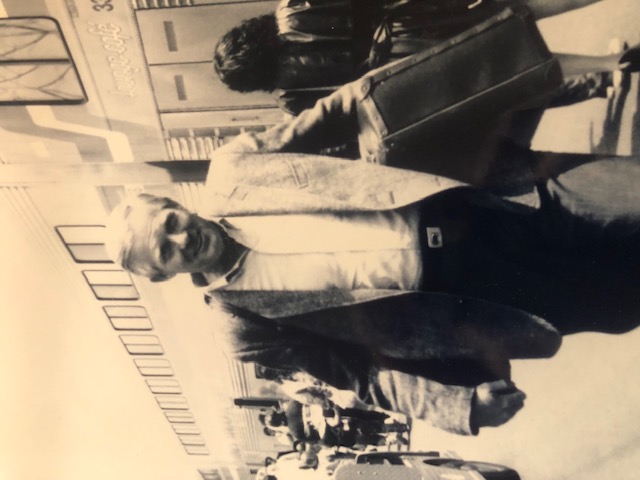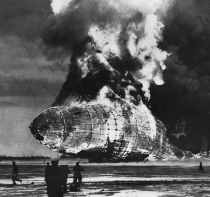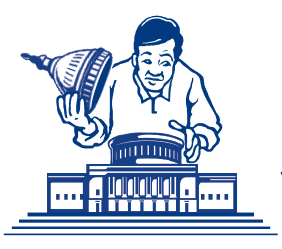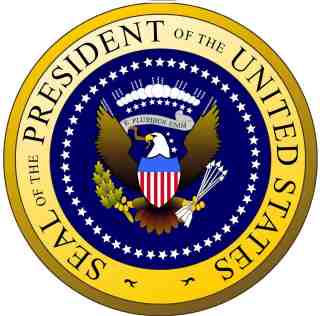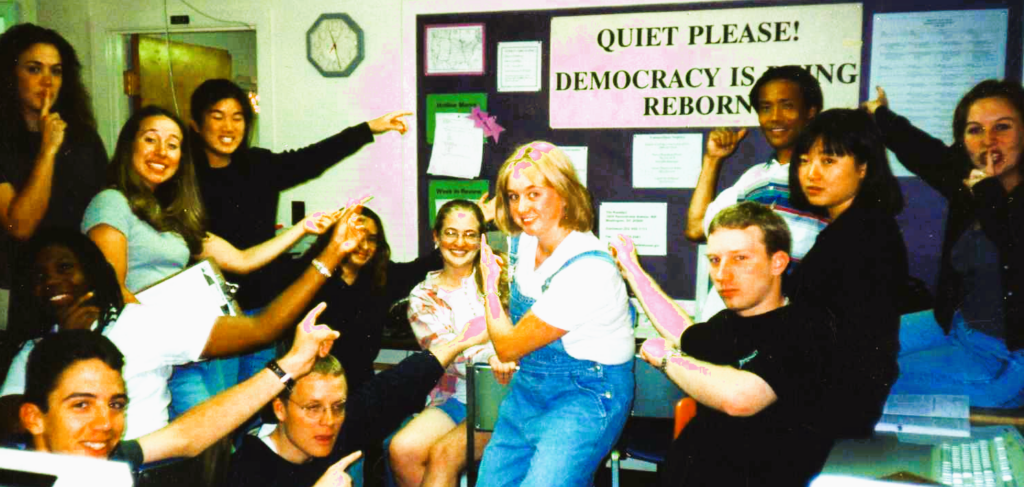
Night Shift
With Adelaide and Lorena, the notion that was Project Vote Smart began to sputter to life. Adelaide gave the effort stability, maturity and dignity, Lorena provided an encyclopedic political knowledge and seasoned research skills, the volunteers and interns afforded us the capacity, while I came with a whip. With the whip I would learn to take blood from the lazy, unfocused, or any naive innocence that came to my attention, either in fact or imagination.
The young inexperienced helpers coming in the door were excited and off on an exciting adventure, whereas I dressed my brain each day in battle fatigues and went off to war. The two did not mix all that well–I was ruthless.
Almost all the young people we hired came with a kind of wide eyed excitement not yet tempered by life’s lessons. For a few the most arresting lesson was the work itself. In time, I would come to understand that some modern young Americans thought life’s lessons were easy and free, and that adulthood and the imagined respect they thought came with it required no more effort than what naturally occurred in their having grown an adult sized body.
Most of these young cubs would rise to the effort often in impressive ways, while some discovered that doing something worth doing required the kind of sustained straining that had just never been in their experience. Pointing out an error or suggesting some improvement could be devastating or even produce anger and in the worst cases I would later learn a kind of childish revenge. I slowly learned the lessons of a seasoned diplomat. In the rarest and most troubling cases there were a few who, although committed and willing, had parents who so successfully guarded them from any uncomfortable experience in life that they had no experience whatsoever, rendering them incapable of effectively doing much of anything.
No one was more loyal, kind and determined than Beth. She was on her way to becoming a schoolteacher and she would make a good one, designing her own assignments, but like a few others, her compassionate soul had been waylaid by the rumor that Project Vote Smart was seeking citizens to save the nation, which was actually true.
For an array of reasons, nothing this sweet young lady did was not made worse for her having done it. I hated the thought of dismissing anyone, particularly one who cared and tried so hard, but it would have saved us a significant sum to have paid her not to work.
Late one morning in frustration, I gave her a task that could not go wrong. We needed a tiny piece of wood to repair our conference table which had a splintery spot that caught and tore people’s clothing. I wanted her to walk a few blocks to a lumber store where she might purchase a small piece of wood to cover the spot. I worked with her, wrote out the dimensions, 2” by 8”, told her to purchase the piece as cheaply as she could, it was just a patch. Certain that she knew where the lumber store was, I told her the store would cut a piece to those dimensions for a dollar or two and sent her on her way.
A half hour later, late for a lecture I was to give, I rushed out the front door to see Beth walking back from the lumber store empty handed. As I ran past, I yelled, “Where is the little piece of wood?” Disappearing around the corner she yelled a response, “They’re going to deliver it after lunch.” Oh God.
Returning a few hours later I found a lumber delivery truck in front of our office and two men carrying up an enormous 8×4 ft. sheet of plywood. I bounded up the stairs to ask Beth what was going on! “Where is the little piece of wood you went to get?” “Why, it’s on the conference table.” And so it was, sitting there right on top, my little spot of wood exactly as I wanted it.
As the two men entered the room and propped the 8 foot plank against the wall, I noticed that a little notch had been cut off one corner. The bill, plus delivery, was a hundred and something.
Beth, seeing my disbelief offered, “They said the cheapest kind of wood they sold was plywood, so I bought the plywood and had them cut out the piece you needed.” A perfectly logical following of my instructions.
I tell that story because she was not unique, amongst our interns or first jobbers. Thankfully, more often than not, we found ready talent and in the most surprising places. Impressive, idealistic young people who, given the chance and wanting to make a difference in the world, awed us with their ability to learn, apply and lead. I think of Angela, a sporting goods clerk; Jodi, a Mary K Cosmetics saleswoman and single mom; Alex, a recent law school graduate; Julie, the university provost’s daughter; and Mike, a mostly self-taught whiz kid in the new IT field. They, along with some heavenly-sent interns, put the Grail within our sights.
By Election Day we had compiled basic background research on almost 1400 candidates for federal offices. We covered every congressional candidate; if they filed, we covered them, including: Mickey Mouse, the Lord God Almighty (apparently residing in Las Vegas) and even a few running for office from prison cells. If rules allowed them to file and make the ballot under any name from any address, we covered them. The “Lord God Almighty,” on the ballot under just that name and who understandably lived and worked where he was most needed, lost. Other flakey candidates lost too, but not necessarily to those less flakey. My point is that we covered everyone. We made no distinctions, if they made the ballot, we were on it and collected every detail we could.
We had set up a “Voter’s Research Hotline” bank of 50 phones, and staff, interns and volunteers were well trained and ready to answer them all. Next to each phone we placed an industrial strength metal catalogue stand with binders we called “The Bible,” each containing hundreds of pages of data. Each caller would have their own personal researcher to look up whatever they needed to know. Voters’ inquiries poured in over the lines. At the end of each day, research teams marched in from the research room and added new pages of data to the bibles from that day’s research: the candidates newly announced, new votes, ratings, issue positions, money or new biographical details were all refreshed and updated in all 50 bibles.
Somewhere early in the process we recognized that many citizens wanted paper copies of the information, or what one student called “data on dead trees.” So, we published a Voter’s Self-Defense Manual giving 100-page samplings of the data we had collected on each state’s congressional delegation and some brochures urging citizens to take control, be the boss, fight back, reclaim our power from a Washington that had grown out-of-touch and self-obsessed.
What the staff, students and volunteers had managed to do in little more than a year was remarkable by any standard. The only serious problem occurred the month, I ran out of money to pay the small paychecks staff depended on to live. I had known for weeks that funds weren’t coming in as fast as they were going out and with each payroll, we nudged closer to financial death. Not wanting to dampen the enthusiasm, the work, the enormous progress we were making, I had said little, but they knew anyway. I had been counting on another $25,000 grant from a goddess named Geri Mannion, Vote Smart’s program officer at the Carnegie Corporation who had magically saved us before, but it had not materialized and so the day came.
Vote Smart went broke and so was I. I gathered the entire staff on the lawn outside our Oregon State University offices. I filled them in on the details of our dilemma. There was simply not enough money to both make payroll and to maintain the programs, and something was going to have to give. I told them I would give each department five minutes to argue why their department was so important that we could not cut it. I do not know if the staff met in advance and organized what happened next or not, but they got me, they got me good!
Lorena, heading the Research Department, clearly the most crucial department, stood up first. “I do not care if you cannot pay me, but don’t you dare cut my program,” then she simply sat down. My recollection of how long I held it together is pretty foggy, but I would guess I was able to keep my face on for two or three others that got up and said essentially the same thing before I had to excuse myself.
The episode ended with my only missing payroll by three days. Geri did come through with another $25,000 grant, I paid everyone and swore to myself I would never go through such a meeting again. I quietly began a policy of adding 10 to 15% miscellaneous to all future grant requests, and hording it for any such future rainy day.
A few months into our Oregon move, an eccentric, political gadfly with enough money to run for president named Ross Perot called. Ambitious but earnest, this fellow was about to launch a quixotic campaign against both the Republican, George H. Bush and Democrat, Bill Clinton, candidates for president. He wanted us to send him a box of our materials, brochures, pamphlets, press announcements and anything else we might have written. Naively thinking he was going to distribute them in support of us we were happy to oblige. Two weeks later he launched his campaign, using lines pulled directly from the texts of our press releases, manuals, and brochures: Voter Defense, Be the Boss, Take Charge, Fight Back, etc. With Mr. Perot’s status just above goofball, but lower than mainstream, we just hoped he would help Vote Smart or at least give our people some credit. Neither acknowledgement nor support for Vote Smart ever found its way into his adopted rhetoric.
In the spring before that 1992 November election we had received a call from a PBS program called The McNeil/Lehrer News Hour. This news show, popular amongst those few able to tie their own political shoes, wanted to do a story on “this idea called Vote Smart.”
Unsurprised by the NewsHour’s attentions, I simply wondered how long it would take NPR, the radio version of public broadcasting, to discover and do stories about Vote Smart. That, as it turned out, would take more time than I would have on the planet.
PBS would continue their interest with other interviews including a program called Adam Smith’s Money World. Arriving at Adam Smith’s studio in Washington, DC a bit late, they rushed me in and slapped a little microphone on my lapel. The host then spent a nice 30-minutes grilling me about this great new idea called Vote Smart. However, the interesting and telling part of the program happened after the cameras were turned off. I had stood up, un-hooked the clip-on mic and said to the host, “Thank you for having us on, Mr. Smith.” The bemused look on “Mr. Smith’s” face struck me as strange. Then he put his two hands on my shoulders and said, “My name is Goodman, Mr. Smith died 200 years ago.”
So, The NewsHour and Adam Smith’s Money World would be the only prominent national stories that year that told what we were doing and how we were doing it. We would learn that it was the how we were doing it part that conquered voter cynicism, their disbelief and growing lack of trust in any political organization.

Smith’s Money World generated hundreds of calls but on the evening The NewsHour played their Vote Smart segment things went a bit differently. I was so distracted with other work and so certain that it was merely a tiny taste of the feast to come that I did not watch. While all the staff and students were over at our university Hotline office, I was working in our main downtown office alone and that is how I came to answer the phone after hours and savor such sweet angry words.
“What the Hell is this Project Vote Smart?” the caller obnoxiously demanded. The Vice President of Northwestern Bell, the telephone operating company covering the seven-state northwestern region of the country, our region, was not happy. “Why, want’s the problem?” I asked. It turns out that ten seconds after The NewsHour program ended the telephone company was hit with 35,000 simultaneous calls to one number, our toll-free Hotline. That spike caused Bell’s computers to crash. I offered a somber apology even as my brain squealed in delight.
I hung up and called the campus office. It was busy. I kept hitting redial, busy, busy and busy. I grabbed my coat and jogged over to campus. Everyone was on the phones or running around like excited ants in a sugar bowl.
Again, we slept with the phones, we did not want to miss a single caller, “Where have you been, I have been calling for two hours?” Followed by the most wonderful words, “How can I help.” Over the next seven days, thousands of new supporters and tens of thousands of dollars joined the effort.
The 1992 election day drew near, and no other network program had called to do a story, so we began to call them so often we became an irritant. We thought we were the perfect election season NPR story, but they just got irritated at our staff. “Do not call us anymore! We are aware of you. We talk about you in the halls. Stop calling us!” The very next day their program, “All Things Considered,” made what they “considered” clear. It was late October, a week before the election, when a thankful nation finally learned what to do with all those gooey pumpkin seeds.
Oh yeah, there were a local radio shows and a few syndicated, my favorite being the G. Gordon Liddy program. You may recall this guy who during the Nixon days impressed people by putting cigarettes out on his forearm saying, “The trick is not minding.” He loved Vote Smart, which for me suggested we had crossed the Rubicon into the extremist camps.
At 5am on Election Day ABC News, the network standard for accuracy set by Edward R. Murrow during World War II and then Walter Cronkite for a few decades showed up at our Hotline office with its new version of cutting-edge journalism called Good Morning America. This nuevo, goofy, happy news film crew knew nothing nor cared anything about what we did or how we did it. They just wanted some early morning color to kick off their Election Day coverage.
They gave us a few seconds to point at the phone bank, then filmed the students dealing with voters calling for help. When I asked if we could tell them how we were doing what we did, they said that would be inappropriate – “Too supportive,” they said. Supportive of what I thought? Getting the same accurate information that your reporters are using.
One thing these news organizations did do was use us. During the campaign journalists started calling us to do the research they used to have to do for themselves. They took so much of our voters’researcher time that it was impacting our ability to handle actual voters’ calls. One such reporter stimulated an idea that would for some years be enormously useful to all political journalists, academics, and anyone else with an interest in doing an accurate accounting on a candidate or issue. He was an anchorman for CBS in Chicago and had been given the assignment to do a story explaining the workings of the Electoral College to the citizens there.
Intern: “Project Vote Smart, can I help you?”
Reporter: “Yes, I am doing a story for CBS on the Electoral College and have a few questions.”
Intern: “Of course, what can I help you with?”
Reporter: “Well I need some background. First, can you tell me where the College is located?”
Such questions from these Murrow/Cronkite replacements heralding the demise of journalism became a great source of amusement for our staff and interns.
At the suggestion of Peggy Giddings, a conscientious PBS journalist, we created a Reporter’s Source Book that contained both a “Golden Rolodex” of experts on the various sides of national issues available to interview but also a synopsis of the major issues facing the nation and the options being debated for dealing with them. Up to 6,000 of them were sent each election year to journalists and academics that wanted to do their job.
Our phones just didn’t stop ringing. There was no way we would be able to help the thousands of callers slamming our phone bank on Election Day. We simply did the best we could that first year and did handle almost a quarter million callers. A good number of them were from people standing in voting booths pulling out their cell phones and asking, “Who is this guy?”
(New chapters will be added roughly once a week)
Richard Kimball, Vote Smart Founder
Sign up on my Blog at: richardkimball.org
or
Medium.com at: https://medium.com/@daffieduck2016
Comments closed